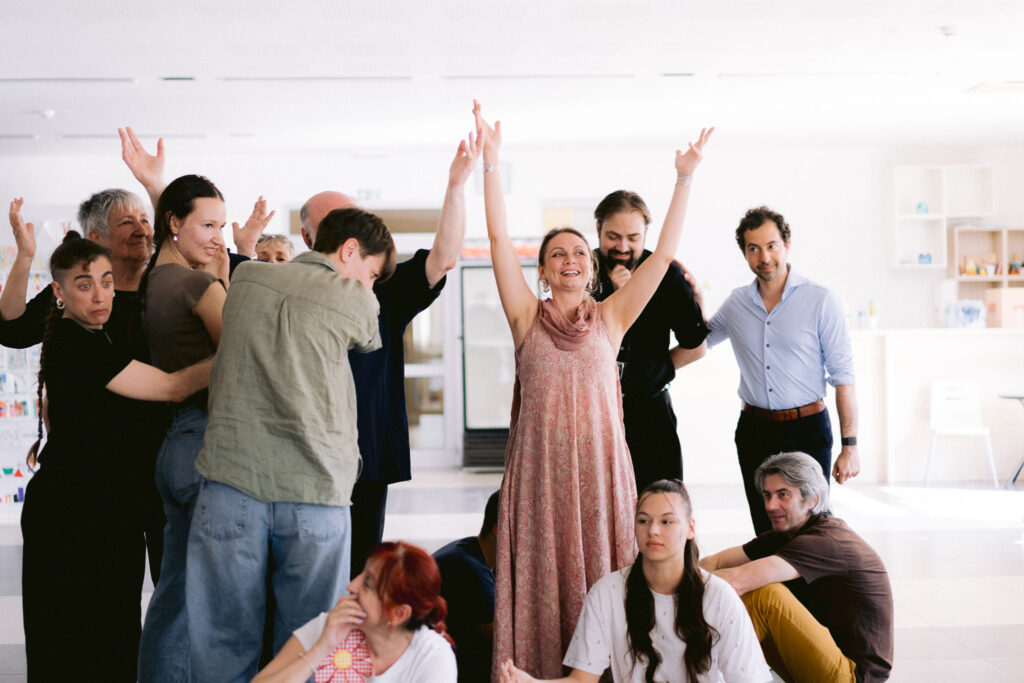The new project titled “Age Against The Machine,” supported by the European Commission
under the CERV – Network of Towns program, officially commenced on Thursday, April 11th
in Novi Sad, Serbia, with the first meeting of representatives from all six partner countries
participating in this project.
This intergenerational project, addressing the causes and consequences of ageism and
confronting the discrimination and violence against older persons, aims to create an
international solidarity network of six cities that will publicly advocate for the combat
against ageism, using a combination of various participatory theatre methodologies.
Through the “Age Against The Machine” project, existing discriminatory practices directed
towards older citizens in various areas of social life will be specifically explored, presented,
and reassessed, particularly concerning older women.
The overall objective of the “Age Against The Machine” project is to increase awareness,
knowledge, and interest among European citizens and decision-makers regarding aging and
the position of the older population, through artistic theatrical expression, with a particular
focus on community theatre.
The initiator and leading partner in the project is Novi Sad – European Capital of Culture
Foundation (Serbia), with partners Nordisk Teaterlaboratorium (Holstebro, Denmark), Teatr
Brama (Goleniów, Poland), University of Evora (Portugal), Red Cross Serbia, Compagnia Il
Melarancio Cooperativa Sociale Ets (Cuneo, Italy), and Trupa Drz Ne Daj (Novi Sad, Serbia).
The associated partner is the East Netherlands Development Agency.
In addition to the initial Kick-off training, which has recently been finished, the project
includes the following planned activities: six premieres of theatre performances with
intergenerational communities in the project partner countries (Poland, Serbia, Portugal,
Denmark, Italy, the Netherlands), as well as five “Age Against The Machine” festivals in the
project partner cities (Holstebro, Cuneo, Evora, Goleniów, Novi Sad). During the final
conference in Belgrade (Serbia), the Red Cross Serbia will present a Written set of
recommendations as one of the legacies of the project, intended for decision and
policymakers, media, and expert public, both at the national and European levels.
Additionally, the partners’ process work will be monitored by the University of Evora in
terms of methodological efficiency and innovations. This methodological monitoring will be
presented in the form of a scientific paper, outlining an innovative sustainable hybrid
methodology that will be used with various techniques throughout the process.
Loading...


